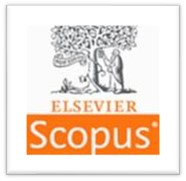Document Type
Article
Department
Paediatrics and Child Health, School of Nursing and Midwifery, Pakistan
Abstract
Background: Menstruation has become a taboo topic among adolescent females, affecting their reproductive health, particularly in more traditional South Asian nations such as Pakistan. The study highlights the societal silence surrounds menstruation, which leads to detrimental practices and attitudes among school-age females. The study reveals the sociocultural, psychological, and educational challenges that teenagers encounter. The presence of myths and misconceptions adds to unsanitary habits, which undermine education and reproductive health.
Methodology: A descriptive cross-sectional study was conducted in urban Karachi. The participants were 850 unmarried school-going female adolescents aged 13 to 19. The data were collected using a pre-coded questionnaire. SPSS version 10.0 was used for descriptive and inferential analysis. The significance level was set at a p-value of 0.05 for all analyses. Normal distribution was assessed using the Kolmogorov–Smirnov test.
Results: The mean age was 15.39 (±3.266) years, with an average of 7.67 (±2.119) years of schooling. Only 59 %( n=501) received Information before menarche, and 94% (n=797) did not own a TV. Good menstrual knowledge was demonstrated by 72.4 %( n=614). Unhealthy practices were prevalent in 49.8 %( n=422) of participants. There was a significant difference in practices based on educational background.
Associations were found between prior Information and menstrual knowledge (χ² = 6.058, p = 0.012) but not between school type and TV ownership. Multivariate analysis revealed that prior Information significantly influenced knowledge (OR: 1.481, 95% CI: 1.082-2.027). Meanwhile, schooling positively influenced practices (Adjusted OR: 1.106, 95% CI: 1.036-1.182), while school type exhibited a reverse association (Adjusted OR: 0.636, 95% CI: 0.483-0.836).
Conclusion: There exist intricate challenges surrounding menstruation in urban Karachi, reflecting the absence of sex education in Pakistan. This study advocates for comprehensive strategies to enhance reproductive health education and practices among young women. The study advocates for sex education at the secondary level to help empower adolescent girls. The two potential sources that should be targeted are the midwives who have access to the childbearing mother and their families, and other female members in the community, and the schools where females feel comfortable asking questions that help to mitigate local myths. Community midwives can play a significant role in deciphering what knowledge is being communicated to adolescents.
Recommended Citation
Rizvi, N, Gulzar, S A, Ali, T S, Fazal, S A, Gulzar, A A, Parpio, Y, & Hirani, R. Menstrual hygiene amongst school Girls: Still a messy business. Journal of Asian Midwives. 2024;11(1):3–14.



